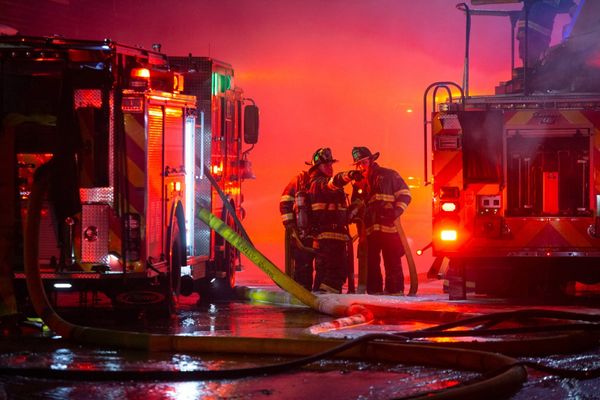
Before its demolition in 2016, the Calais Jungle – as it was known by its residents – was home to thousands of refugees and migrants who were hoping to either claim asylum in France or to obtain a passage to the UK. Originally consisting of makeshift tents and lacking basic amenities such as heat and water, the precarious encampment was made more tolerable by the efforts of grassroots activists. Emphasising the lived realities beneath this notorious symbol of the refugee crisis in Europe, Thomas Laurance’s extraordinary documentary observes the cultural vibrancy and solidarity that blossomed on the muddy ground.
While there are glimpses of well-known faces, including actor Juliet Stevenson, the focus here is on ordinary British people who were spurred to action by a shared sense of responsibility. At a time when NGO operations were hampered by red tape, volunteers arrived in Calais with housing materials and other life-saving supplies. They helped the residents to erect more secure housing units, as well as shops, restaurants and even a theatre space. The facilities were rudimentary, yet this work created an environment of normality and community for those whose fundamental rights were being denied by state institutions.
Far from having a saviour complex, many volunteers wrestled with the moral ethics of their work. In bettering the living conditions of the migrants, some activists wondered if they had inadvertently encouraged their determination to attempt the dangerous Channel crossing. One unforgettable scene sees a social worker exchanging texts with a seven-year-old Afghan boy, who was suffocating inside a lorry container. This harrowing moment conveys the human tragedy concealed by faceless statistics: this is a matter of life and death. The volunteers might have insisted that their work is not bound by politics, yet their empathy remains the most subversive tool in battling draconian ideologies.
• On Our Doorstep is released on 12 August at Bertha DocHouse, London.







